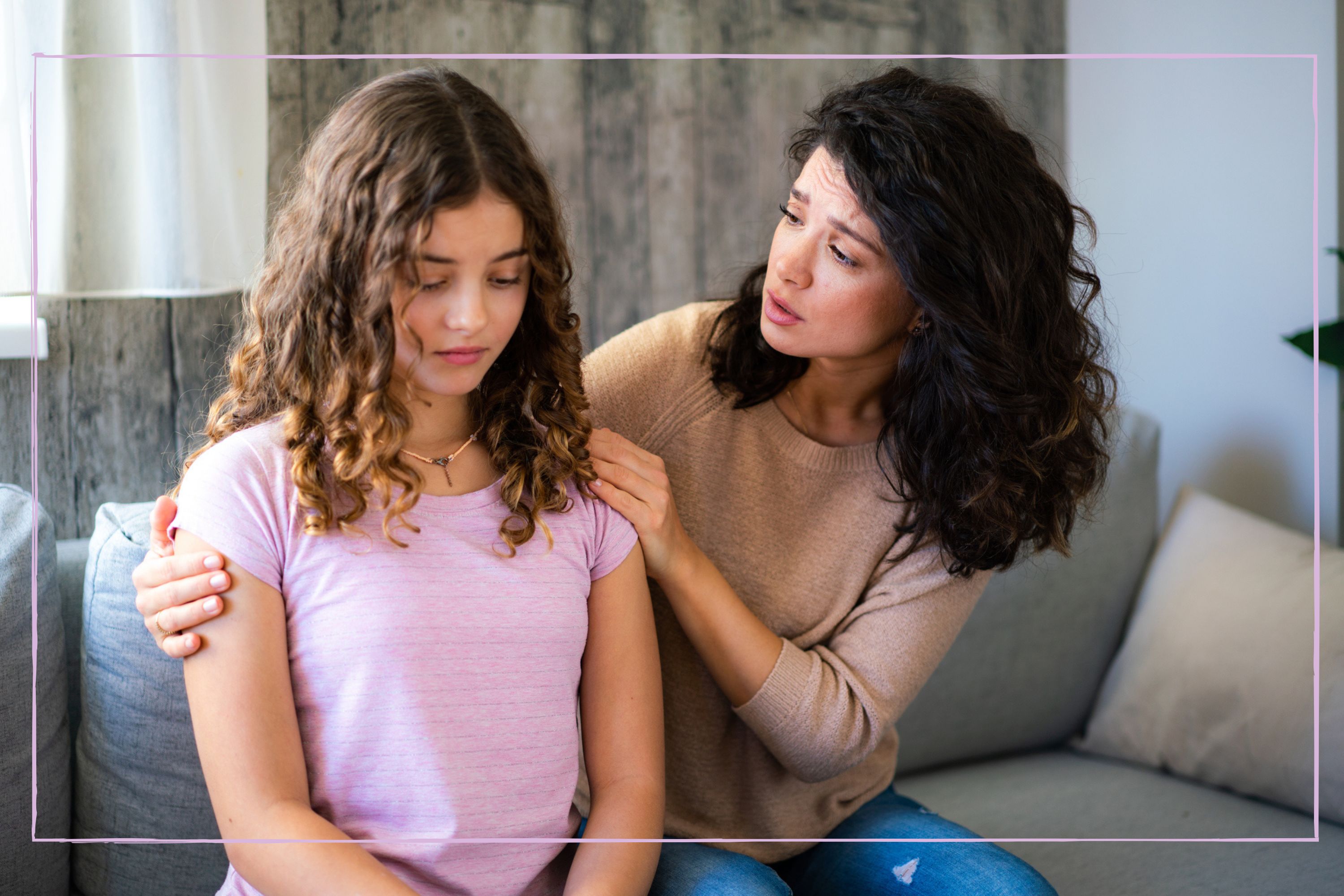
If you feel like you're losing connection with your teen, a psychotherapist shares four key reasons this could be happening - and strategies to fix it.
If your teenager won't talk to you anymore, or you notice they will not socialise or leave their room, you're naturally going to have concerns. How to talk to a teenager in a way that doesn't cause further friction can be a fine line to tread, but there are effective methods of communicating with them that ensure both sides are heard and understood.
If you have been feeling a loss of connection between yourself and your teen, before you start trying to fix it you could step back and look at possible reasons it's happening. Psychotherapist Zara Kadir believes this is the best strategy, sharing with parents what they need to look at when trying to identify why their teen could be pulling away from them.
Writing on Instagram, Zara says "Are you feeling disconnected from your teenager? It’s easy to feel lost when your teen starts to pull away, but building and maintaining a strong connection is possible!" The therapist asks that parents look at the following:
4 reasons you might be losing connection with your teen
1. Are you modelling co-operation?
Zara says "The more you show a willingness to listen and co-operate, the more likely your teenager is to do the same. Say yes as much as possible and be flexible."
You could try saying: "I'm sure can guess what my concerns about you going out are, can you tell me why I shouldn't worry and how we can plan so you can go?"
2. Are you trying to fix their business?
Zara suggests that if you find yourself constantly nagging your teen, it could be time to let them learn from their mistakes and implement their own strategies for living their life effectively.
The therapist steers parents to say "I've noticed you find it hard to put your towel on the rail, can you write yourself a note?"
3. Are you lecturing instead of inquiring?
Zara says "If you want to know if they've tried alcohol or drugs or if they're abusing social media, start an open and curious dialogue."
You could say "I've noticed you use TikTok a lot, can you tell me what you like/dislike about it?"
4. Are you respecting their privacy?
Remember, your teen is at a stage in their life where you're encouraging them to problem solve alone - if they choose to actually do this, or involve friends in this process instead of yourself, you need to be ok with that. Let them know if they need your help you'll offer it, before taking a step back.
Zara suggests parents say "I love seeing your independence, I want to give you space but remember you'll never be in trouble for telling me the truth, you can always come to me."
Once you've looked at those four key areas, Zara has a further three important things parents should remember if they want to bridge the gap between themselves and their teen.
Simply put, these are to listen more, lecture less, respect their space, and create small moments of connection. Zara says "Sometimes, they just need you to hear them. Teens need independence; respecting that shows trust. From a quick chat to a shared activity, every moment counts."
For more on teens, we debunk the teen myths that are not true, and look at how independent a teenager should be. We also asked teenagers what they wish their parents had done differently, and their answers are surprisingly candid.







